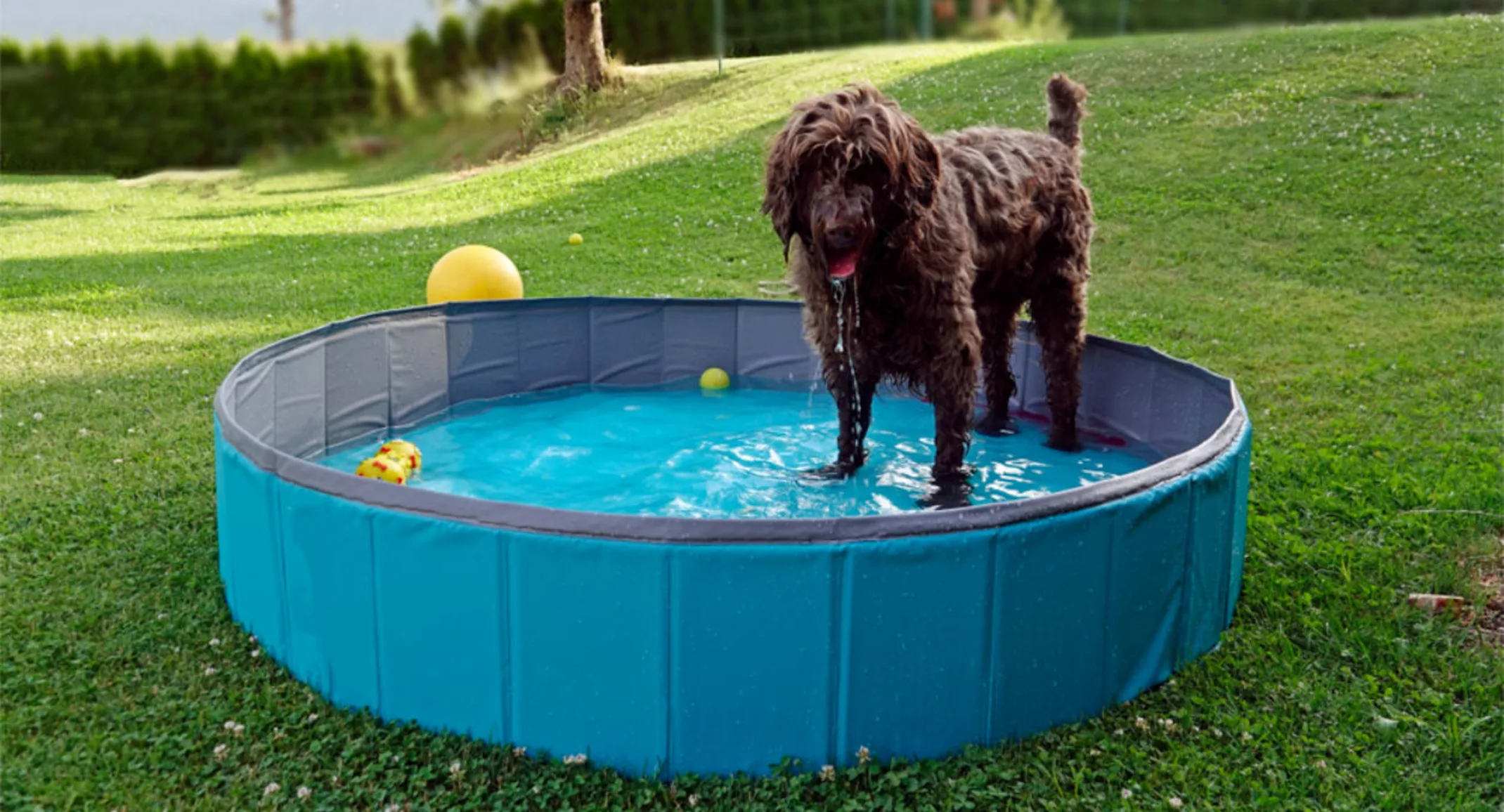Your Dog’s Balance Problem May Be Neurological
For Pet Owners

By Dani Powers, DVM, DACVIM (Neurology)
Vestibular disease–the disturbance of balance–in dogs can be a scary and frustrating condition. Nobody likes to see their dog wobbling around, and the condition may arise spontaneously without a distinct, known cause. Board-certified veterinary neurologists are trained to diagnose and treat conditions of the vestibular system.
The vestibular system is made up of peripheral (inner ear) and central (brainstem and cerebellum) portions. Hearing is closely attached to the system’s components and may also be affected by a vestibular problem. The main job of this system is to process sensory information to help control balance and hearing.
Abnormalities in the middle and inner ear, brainstem, and cerebellum result in various degrees of vertigo-like-symptoms, including ataxia (wobbly walking, difficulty walking), rolling (think like an alligator), stumbling to the side, circling, head tilt, nystagmus (abnormal eye movement), and vomiting. These signs may be gradual or come on acutely in a short time. In some cases of middle and inner ear infection, facial nerve paralysis may occur, causing a drooping of the face and ear on the same side as a head tilt.
Underlying causes of vestibular disease may include geriatric or idiopathic causes (unknown cause of vertigo), middle and inner ear infection, nasopharyngeal polyps, hypothyroidism, ototoxic drugs (topical and oral drugs), infectious meningitis (brain infection), autoimmune meningitis (non-infectious brain inflammation), neoplasia (cancer), trauma, and degenerative disease, to name a few.
Clinical signs can help to determine where the vestibular system may be affected (inner ear or brainstem and cerebellum); however, further testing is important to definitively diagnose the problem. Baseline testing (blood work, blood pressure, chest x-rays, etc.) and advanced imaging of the brain (MRI) can help in diagnosing the cause. Additional tests may include a spinal fluid tap and infectious disease titers.
Treatment for vestibular disease varies depending on the cause. However, it may range from supportive care to antibiotics or even surgery.
If your dog experiences signs of balance problems, circling in one direction, head tilt, vomiting, or abnormal eye movements, you should seek veterinary care immediately. Consult with your veterinarian first if possible. Otherwise, seek emergency care at a 24-hour facility like MissionVet Specialty and Emergency. Your veterinarian or an ER doctor can help provide a referral for further workup and treatment options for your dog.
About Dr. Powers Dr. Powers is a board-certified small animal neurologist at MissionVet Specialty & Emergency. She joins MissionVet after serving as an associate neurologist at Seattle Veterinary Specialists. She graduated from WSU College of Veterinary Medicine in 2011. Dr. Powers completed a rotating internship in 2012 and her neurology residency in 2015 both at Seattle Veterinary Specialists. She has an interest in managing neurosurgical spinal emergencies as well as chronic spinal disease. In addition, she enjoys treating all aspects of brain disease including epilepsy management, brain tumors, degenerative, inflammatory and congenital brain conditions.

